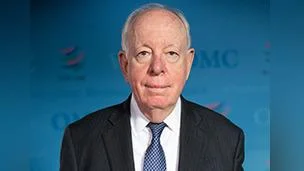The 2025-2026 Work Plan aims to build on the initiatives started at the 13th WTO Ministerial Conference (MC13) in Abu Dhabi in 2024. An action plan will be created with member input, setting clear milestones and targets.
The Work Plan includes a detailed compendium of the Informal Working Group (IWG) on Trade and Gender's technical work and a ministerial joint statement by co-chairs. It also proposes adding a paragraph on women's economic empowerment through trade to the MC14 outcome document.
A recent WTO Symposium on Trade and Women's Economic Empowerment was held on July 2, in collaboration with IWG co-chairs Cabo Verde, El Salvador, and the United Kingdom. The event focused on how trade policy can empower women economically. WTO Director-General Ngozi Okonjo-Iweala emphasized that empowering women is both morally imperative and economically necessary, calling for a modernized multilateral system serving women and developing economies better.
Discussions highlighted digitalization opportunities and challenges, regional trade agreements' roles, and gender-disaggregated data importance. Brazil, Chile, New Zealand, and the United Kingdom shared national experiences. Institutional initiatives from organizations like the International Trade Centre (ITC), Food and Agriculture Organization (FAO), and World Bank were also presented.
Ambassador Simon Manley of the United Kingdom noted experts encouraged addressing gender issues not only within IWG but across all WTO committees. Looking forward to MC14, he mentioned members are seeking renewed commitment to embed gender equality into multilateral trading systems.
The second edition of the International Prize for Gender Equality in Trade recognized impactful national initiatives promoting gender equality through trade-related policies. Winners included Brazil for "Elas Exportam," Dominican Republic for "Service Revolution," Ghana for "Inclusive Trade Facilitation Project," with special mentions for Ecuador's "Safe Company Seal" initiative and Viet Nam's project under WTO Chairs Programme at Foreign Trade University.
The United Kingdom shared findings from a Scottish Government report on gender export gaps revealing that only 15% of SMEs led by women engaged in export compared to men's 17%. Closing this gap could boost Scotland’s trade revenues significantly over two years.
Costa Rica updated members as Chair of Inclusive Trade Action Group (ITAG) for 2025-2026 about its focus areas including gender equality support for SMEs among others. Key activities involved virtual meetings adopting priorities alongside launching an OECD-led Trade and Gender Review of Latin America with plans announced towards standardizing accession procedures culminating into GTAGA Day 2026 event planned ahead too!
Ukraine presented strategies advancing women's economic empowerment integrating them within broader recovery policies highlighting mentorship finance access training psychological assistance programs encouraging participation traditionally male-dominated sectors reporting significant increases newly established businesses by women during past years!
Presentations from international organizations such as UNECE emphasized promoting gender-responsive standards practical tools like Gender Action Plan Model Blueprint supporting institutions embedding considerations regulations AI governance addressing biases emerging technologies! IWCA global network outlined persistent challenges faced within coffee sector presenting strategic plan structured around organizational development research advocacy impactful programmes high-impact communications!

